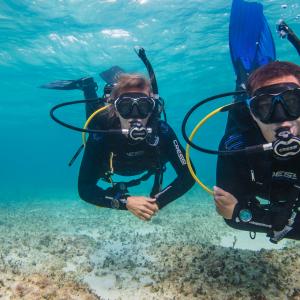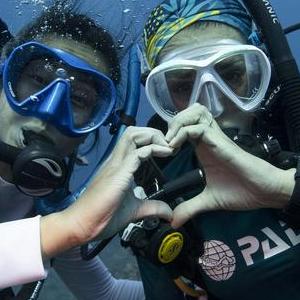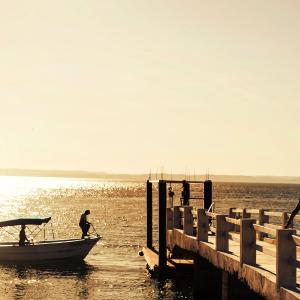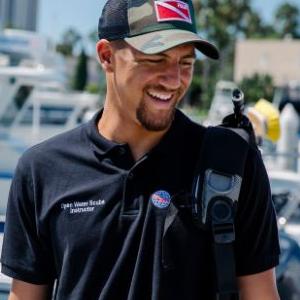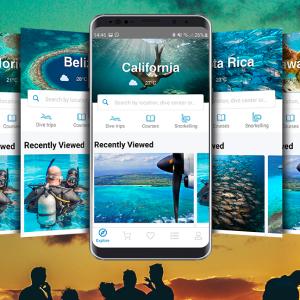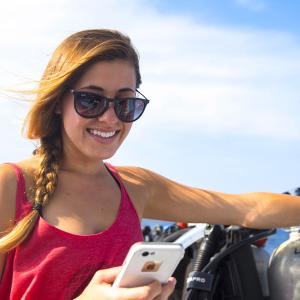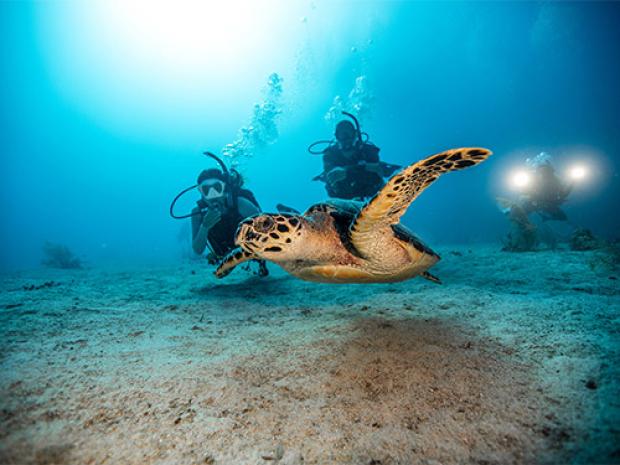

From Your Home to the Sea

Choose your Ocean Adventure
Fly with Edelweiss to your dream beach vacation and experience the wonders of the underwater world with over 6,600 PADI dive centres worldwide.
Take a PADI Scuba Diving Course to Dive the World
Scuba diving requires a minimum level of health and fitness.
View health requirements.
No prior scuba diving experience is required. You must be at least 10 years of age.
Try Snorkeling and Diving

Snorkeling experiences
Discover snorkeling to enjoy watching life below the surface and comfortably venture underwater for short visits.

Short Discover Scuba Diving Experiences
In just a few hours, a highly-trained PADI Professional will explain basic scuba diving skills, and help you take your first breaths underwater.
Trips and Courses for Certified Divers

Dive more on vacation
Choose from thousands of diving trips and training opportunities to refresh or improve your diving skills.
30 million divers can't be wrong...
There's nothing better than the thrill of learning a skill that opens your eyes to a whole new world odf adventure. But don't just take our word for it, here's what PADI divers are saying:
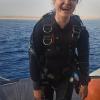
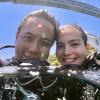
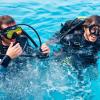
Scuba Diving Certification FAQs
Your questions answered.
The first level of a scuba certification is Scuba Diver, which on average can be completed in as little as 2 days.
The independent study using PADI’s digital learning program (eLearning) takes about eight hours. In-water work with a professional PADI Dive Instructor, includes pool training and open water dives.
PADI courses are flexible and performance-based, which means you progress at your own pace. Once you and your instructor feel confident that you've mastered a skill, you’ll move on to the next one. If you want to try the new skill a few more times, that’s okay too. The goal is for you to learn how to be a safe, confident diver and feel comfortable in the water. That means that the actual course duration may vary to allow the performance-based setup, ensuring each skill is thoroughly learned before advancing.
Learning to dive is an exciting and challenging experience. With PADI eLearning you can read, watch videos, and take quizzes at your own pace to achieve the dive knowledge and fundamentals required to confidently advance to your in-water training. An experienced PADI Instructor will help you every step of the way during your training to become a safe and competent diver.
There are three steps to becoming a certified diver: knowledge development, In-water training, and open water dives.
Knowledge development is the first step and requirement for a recreational Open Water Diver certification. PADI eLearning is an independent study option that lets you learn at your own pace, providing the knowledge and fundamentals you will need to confidently advance to your in-water training with a PADI Instructor.
In-water training: During this step, you will practice your dive skills and learn how to use your scuba gear with a PADI Professional in a pool or pool-like environment. These practice dives will help you build your confidence before you begin your open water dive training.
Open water training: During this third and final step you will complete four open water dives with a PADI Instructor to complete your PADI dive certification.
Once you have completed your course, you will receive a PADI certification e-card! The e-card has details of your certification level and date, along with you and your instructor's name and number. A PADI scuba diving certification allows you to dive anywhere in the world. Similar to driving a car, scuba diving requires specific knowledge, skills and training. A PADI certification is your passport to explore the ocean, rivers, lakes and quarries workdwide.
For questions regarding Certification cards, please see our Certification Card FAQ.
You need basic swimming skills and the ability to comfortably maintain yourself in the water. Your PADI Instructor will ask you to:
- Swim 200 metres/yards (or 300 metres/yards wearing mask, fins and snorkel) without stopping. There is no time limit, and you may use any swimming strokes you want.
- Float and tread water for 10 minutes, using any method(s) you want.
Yes. People with missing limbs, reduced mobility, or other physical challenges commonly earn the PADI Open Water Diver certification. Even individuals with more significant physical or mental challenges can still take part in scuba experiences. Talk to your PADI Instructor at your local PADI Dive Center or Resort for more information.
All student divers complete a brief scuba medical questionnaire that asks about medical conditions that could be a problem while diving and will determine if you need to be evaluated by a physician before being able to scuba dive. If the doctor approves, or none of the conditions applied to you, you're ready to start!
No, it’s never too late to start diving. You only need to be in good health and reasonably fit. All PADI students are required to complete a medical questionnaire prior to diving. Some regions also require a doctor’s medical statement confirming you’re medically fit to dive prior to course enrollment/diving. As diving has inherent risks, minimum age limits are in place to ensure children can understand dive theory and react to situations responsibly, but there is no maximum limit.
Aside from pregnancy, no. Because physiologists know little about the effects of diving on the fetus, the recommendation is that women avoid diving while pregnant or trying to become pregnant. Menstruation is not normally a concern.
People find the “weightlessness” of scuba diving to be quite freeing. Modern scuba masks are available in translucent models, which you may prefer. During your scuba diving training, your instructor will give you plenty of time and assistance to ensure you are comfortable.
Your PADI Instructor will be by your side the entire time. Your first dives will be to 12 meters/40 feet or shallower. The maximum depth allowed for any dive during the Scuba Diver Course is 12 meters/40 feet and 18 meters/60 feet during the Open Water Course.
Your PADI certification does not expire. If you haven’t been diving in a while and wish to refresh your scuba safety knowledge and skills, ask your dive shop about the PADI ReActivate™ course.
Many Dive Shops offer discounted packages during off-peak seasons, depending on location. Dive equipment rental may also be included in training packages, providing cost savings. After you become certified, renting scuba gear is an affordable alternative to buying your scuba gear, and also saves the trouble of storing and traveling with dive gear. Diving locally is a budget-friendly alternative to dive travel and a great way to meet other divers within your community.
The PADI Difference
For over 50 years, PADI has undeniably been the Way the World Learns to Dive®, setting the standard for the highest quality dive training, underwater safety and conservation initiatives while evolving the sport of diving into a passionate lifestyle.
30,000,000 +
(and counting) PADI certified divers to date!
6,600
PADI dive centers and resorts across the globe
128,000
PADI Professional members worldwide
69 million
Ocean Torchbearers

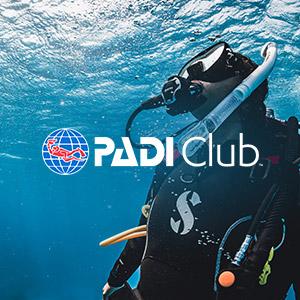
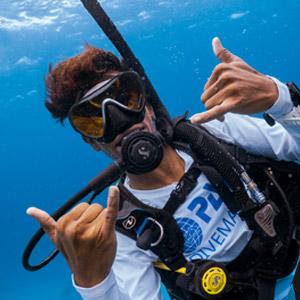

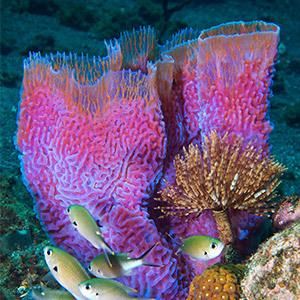
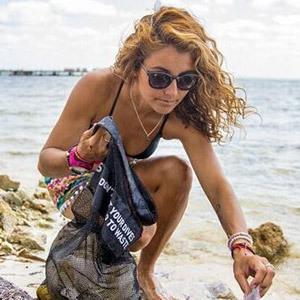

 Marine Debris
Marine Debris
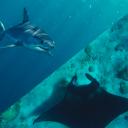 Shark & Ray Protection
Shark & Ray Protection
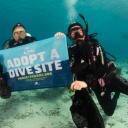 Adopt The Blue
Adopt The Blue


